How to Protect Yourself from Scams Following the Southern California Wildfire
08:19 | 12/01/2025 Print
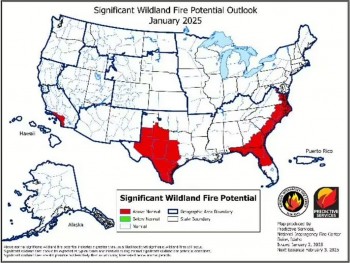 Wildfire Prediction: Full List of Danger Zones Across the U.S. from January to April 2025 Wildfire Prediction: Full List of Danger Zones Across the U.S. from January to April 2025 |
 $125M Mansion Burned Down in LA Wildfires: Most Expensive Home, HBO's "Succession" $125M Mansion Burned Down in LA Wildfires: Most Expensive Home, HBO's "Succession" |
The recent wildfires in Southern California have brought devastation to communities, leaving people searching for ways to recover and rebuild. Unfortunately, such crises often attract scammers who exploit the chaos and urgency for their own gain. Whether you are trying to donate to relief efforts or seek assistance as a victim, understanding these scams and learning how to avoid them is crucial.
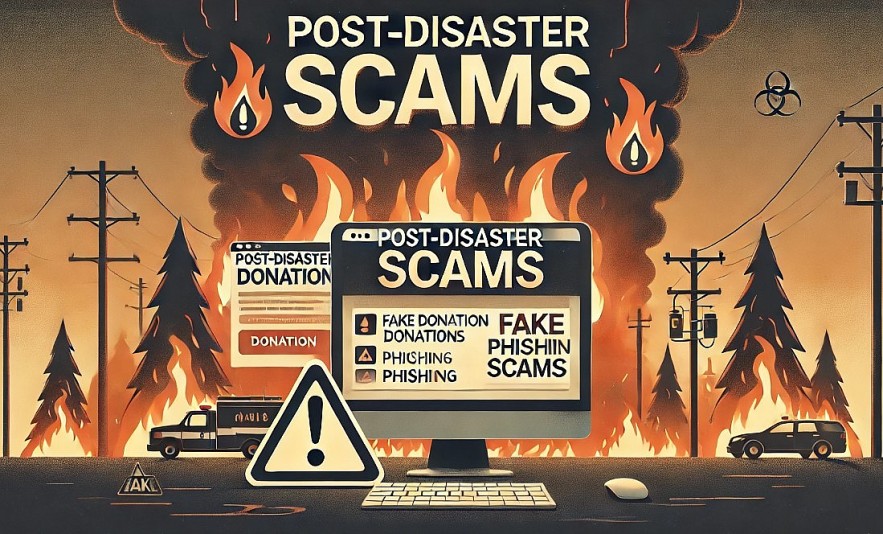 |
| Scammers may be taking advantage of the California wildfires |
The Rise of Social Engineering Scams During Disasters
Disasters like the Southern California wildfires create fertile ground for social engineering scams. Social engineering involves manipulation or deceit to gain access to sensitive information, such as passwords, banking details, or other private data. Scammers use this technique to exploit the heightened emotions, urgency, and confusion following a crisis.
One of the most common methods is creating fake donation pages. These fraudulent websites or social media campaigns are designed to mimic legitimate organizations, tricking well-meaning individuals into giving money to criminals instead of those in need. Victims of these scams often find out too late that their contributions never reached disaster relief efforts.
Common Post-Disaster Scams to Watch Out For
-
Fake Donation Campaigns Scammers create convincing websites, social media posts, or crowdfunding campaigns that look like genuine relief efforts. They may use images from the disaster, emotional appeals, and names similar to reputable organizations to gain trust.
-
Phishing Emails and Texts Cybercriminals send phishing emails or text messages claiming to be from government agencies, insurance companies, or charities. These messages often contain links to malicious websites or ask for personal information, such as Social Security numbers or banking details.
-
Impersonation Scams Scammers may pose as disaster relief workers, government officials, or charity representatives. They might contact victims directly through social media, phone calls, or even in person, claiming they can provide financial assistance or help file claims.
-
Fake Job or Housing Offers In the aftermath of disasters, victims often look for temporary housing or new employment opportunities. Scammers exploit this by posting fake job openings or rental listings online, collecting deposits or personal information under false pretenses.
-
AI-Enhanced Scams With advancements in artificial intelligence, scammers now use generative language models to craft highly convincing messages. Unlike older scams that often contained grammatical errors or misspellings, these new scams appear professional and are harder to detect.
How to Protect Yourself
1. Verify Before You Donate
- Always research charities before donating. Use trusted platforms such as Charity Navigator or GuideStar to confirm legitimacy.
- Avoid donating through links received in unsolicited emails, texts, or social media posts.
- Be wary of campaigns with urgent or high-pressure language, as this is a common tactic used by scammers.
2. Double-Check Assistance Offers
- If someone claims to be from a government agency or a reputable charity, verify their identity by contacting the organization directly through their official website or phone number.
- Avoid providing sensitive information, such as bank account details or Social Security numbers, unless you are certain of the recipient’s legitimacy.
3. Protect Your Personal Information
- Do not click on links or download attachments from unknown sources. These can lead to malware or phishing websites.
- Be cautious about sharing personal details on social media, especially in public posts, as scammers often use this information to target victims.
4. Watch for Red Flags
- Scammers often use untraceable payment methods like gift cards, wire transfers, or cryptocurrency. Legitimate organizations typically offer multiple payment options, including secure credit card processing.
- If an offer seems too good to be true, it likely is. Stay skeptical of anyone promising large sums of money or free services in exchange for personal information.
5. Use Secure Communication
- When seeking assistance, only interact with official accounts or verified profiles on social media. Look for blue checkmarks or other indicators of authenticity.
- Enable two-factor authentication (2FA) on your accounts to prevent unauthorized access, even if a scammer obtains your login credentials.
6. Stay Updated on Scams
- Follow reputable news outlets and local authorities for updates on disaster-related scams. Knowledge is your first line of defense.
- Consider subscribing to scam alerts from organizations like the Federal Trade Commission (FTC) or the Better Business Bureau (BBB).
How Social Media Facilitates Scams
Social media platforms are often the primary tool for scammers during disasters. These platforms allow criminals to quickly reach large audiences with minimal effort. They can:
- Create fake charity accounts or crowdfunding campaigns.
- Send direct messages to victims or donors.
- Use trending hashtags and emotional content to gain visibility.
Social media’s immediacy and reach make it an effective tool for spreading scams, but you can protect yourself by being cautious and proactive.
Reporting Scams and Seeking Help
If you suspect a scam, report it immediately to help prevent others from becoming victims. Here are some steps to take:
- Report the Scam: Notify the social media platform, your local law enforcement, or federal agencies like the FTC or FBI’s Internet Crime Complaint Center (IC3).
- Alert the Charity or Organization: If a scammer is impersonating a legitimate group, contact the organization to inform them of the issue.
- Monitor Your Accounts: If you’ve shared personal or financial information, monitor your bank accounts and credit report for unusual activity.
Conclusion
In the wake of disasters like the Southern California wildfires, it’s natural to want to help or seek assistance. However, scammers often exploit these situations, preying on people’s generosity and vulnerability. By staying informed, vigilant, and cautious, you can protect yourself from falling victim to these scams.
Remember to verify information, avoid sharing sensitive details, and report any suspicious activity. Together, we can ensure that aid reaches those who truly need it and stop scammers from profiting off tragedy.
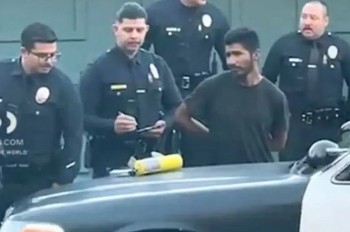 Who is the Suspected Arsonist in the LA Wildfires: A Homeless Man Who is the Suspected Arsonist in the LA Wildfires: A Homeless Man A suspect has been taken into custody in connection with the Kenneth Fire, which broke out on Thursday afternoon in Los Angeles' West Hills. The ... |
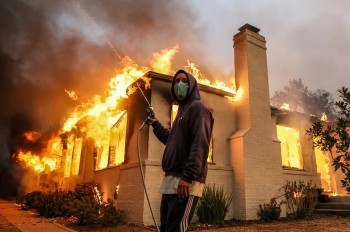 What are the Causes of the California Wildfires Amidst an Arrest for Arson What are the Causes of the California Wildfires Amidst an Arrest for Arson We delves into the possible causes of California fires, the arrest's implications, and insights from experts and authorities. |
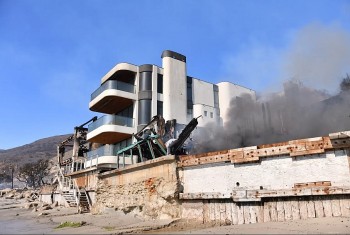 Why Did a Malibu Mansion Miraculously Survive the Los Angeles Wildfire? Why Did a Malibu Mansion Miraculously Survive the Los Angeles Wildfire? As wildfires raged through Los Angeles County, destroying thousands of homes and leaving neighborhoods in ashes, one Malibu mansion stood miraculously untouched amidst the devastation. |
 Who Is Gloria Lynn Mandich? the Second Suspected Arsonist in Los Angeles Wildfires Who Is Gloria Lynn Mandich? the Second Suspected Arsonist in Los Angeles Wildfires In relation to the arson case, California State Parks has reported that they have detained Gloria Lynn Mandich, the suspect in the wildfire that has ... |
Jenny Lee
Article URL: https://cms.knowinsiders.com/how-to-protect-yourself-from-scams-following-the-southern-california-wildfire-42628.html
All rights reserved by KnowInsider
